While not a direct answer to your question, I want to note that you can get nice backtraces in a cross-platform way, using only standard C++11 and without the need for a debugger or cumbersome logging:
It is described on StackOverflow here and here, how you can get a backtrace on your exceptions inside your code by simply writing a proper exception handler which will rethrow nested exceptions.
It will, however, require that you insert try/catch statements at the functions you wish to trace.
Since you can do this with any derived exception class, you can add a lot of information to such a backtrace!
You may also take a look at my MWE on GitHub or my "trace" library, where a backtrace would look something like this:
Library API: Exception caught in function 'api_function'
Backtrace:
~/Git/mwe-cpp-exception/src/detail/Library.cpp:17 : library_function failed
~/Git/mwe-cpp-exception/src/detail/Library.cpp:13 : could not open file "nonexistent.txt"
